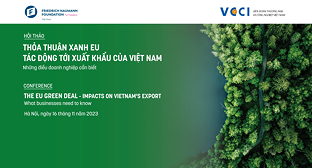Trade Remedy Laws
25/08/2008 12:00
Alan O. Sykes
The term “trade remedy laws” refers to three types of national laws that impose import restrictions under specified circumstances. “Safeguard measures” are temporary trade restrictions, typically tariffs or quotas, which are imposed in response to import surges that injure or threaten “serious injury” to a competing industry in an importing nation. “Antidumping duties” are tariffs in addition to ordinary customs duties that are imposed to counteract certain “unfair” pricing practices by private firms that injure or threaten to cause “material injury” to a competing industry in an importing nation. “Countervailing duties” are tariffs in addition to ordinary customs duties that are imposed to counteract certain subsidies bestowed on exporters by their governments, again when they cause or threaten to cause material injury to a competing industry. Such measures under national law are permitted, but not required, by WTO law, subject to the limitations found in WTO treaty text, including GATT 1994 (hereafter GATT), the WTO Agreement on Safeguards (hereafter SA), the WTO Agreement on Implementation of Article VI of the General Agreement on Tariffs and Trade (the Antidumping Agreement, hereafter ADA), and the WTO Agreement on Subsidies and Countervailing Measures (hereafter SCMA). These WTO Agreements impose extensive substantive and procedural restrictions on the use of each type of measure. This chapter provides an introduction to the law on each trade remedy measure, and to pertinent economic research and commentary. My emphasis will be on WTO obligations, to which national laws must conform (in the case of WTO member states). I make occasional reference to the national law of the United States to illustrate how WTO obligations have been implemented (or not), but will make no attempt at a cross-sectional survey of variation in national statutes.
Các tin khác
- The Dispute Settlement Crisis in the World Trade Organization: Causes and Cures (16/03/2018)
- Modification of trade defence rules regarding non-market economy costs and prices (23/02/2018)
- Research Paper: Options for Disciplining the Use of Trade Remedies in Clean Energy Technologies (03/08/2017)
- Addressing the rise of Trade Remedies against Environmental Goods (03/08/2017)
- Anti-dumping Retaliation - —A Common Threat to International Trade (15/11/2016)
 Home
Home
 About Us
About Us




















